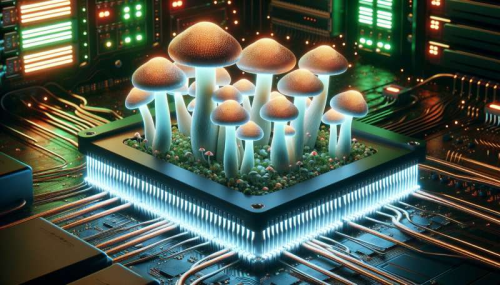OHIO, USA — In a major step toward sustainable and biodegradable computing, scientists have successfully created functional computer memory components using the mycelium (root structure) of shiitake mushrooms. The research demonstrates that biological materials can be engineered to act as memristors—circuit elements that store information and mimic the learning functions of the human brain.
The newly developed device, playfully dubbed a “mushristor,” leverages the natural electrical properties of fungal networks. The mycelium was cultivated, dried, and then integrated into test circuits. The results showed remarkable performance, with the component demonstrating a rapid switching frequency of 5,850 Hertz with approximately 90% accuracy.
A Green Alternative to Silicon
This breakthrough offers a potential solution to the massive environmental problem of electronic waste (e-waste). Current computing hardware relies heavily on energy-intensive silicon manufacturing and creates toxic, non-biodegradable waste.
Biodegradable Hardware: The fungal component is entirely organic and can naturally decompose after use.
Neuromorphic Potential: Mycelium naturally transmits electrical signals, making it an excellent candidate for neuromorphic computing—designing machines that process information with the energy efficiency and adaptability of a neural network.
Comparable Performance: While still in the experimental phase, the performance achieved is comparable to that of early, conventional silicon-based memristors, signaling a viable pathway for the future of eco-friendly electronics.
Researchers believe that “mushristors” could eventually form the backbone of next-generation, low-cost electronics, from wearable devices to advanced aerospace applications, proving that the future of high-tech may be surprisingly low-tech.







